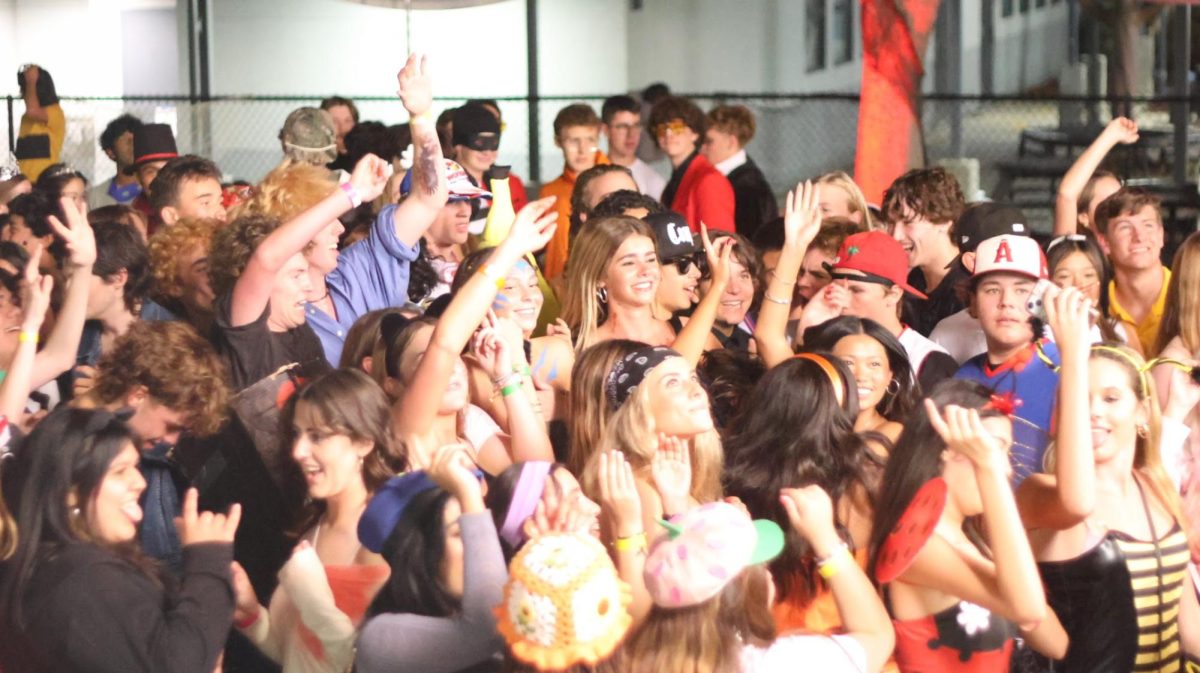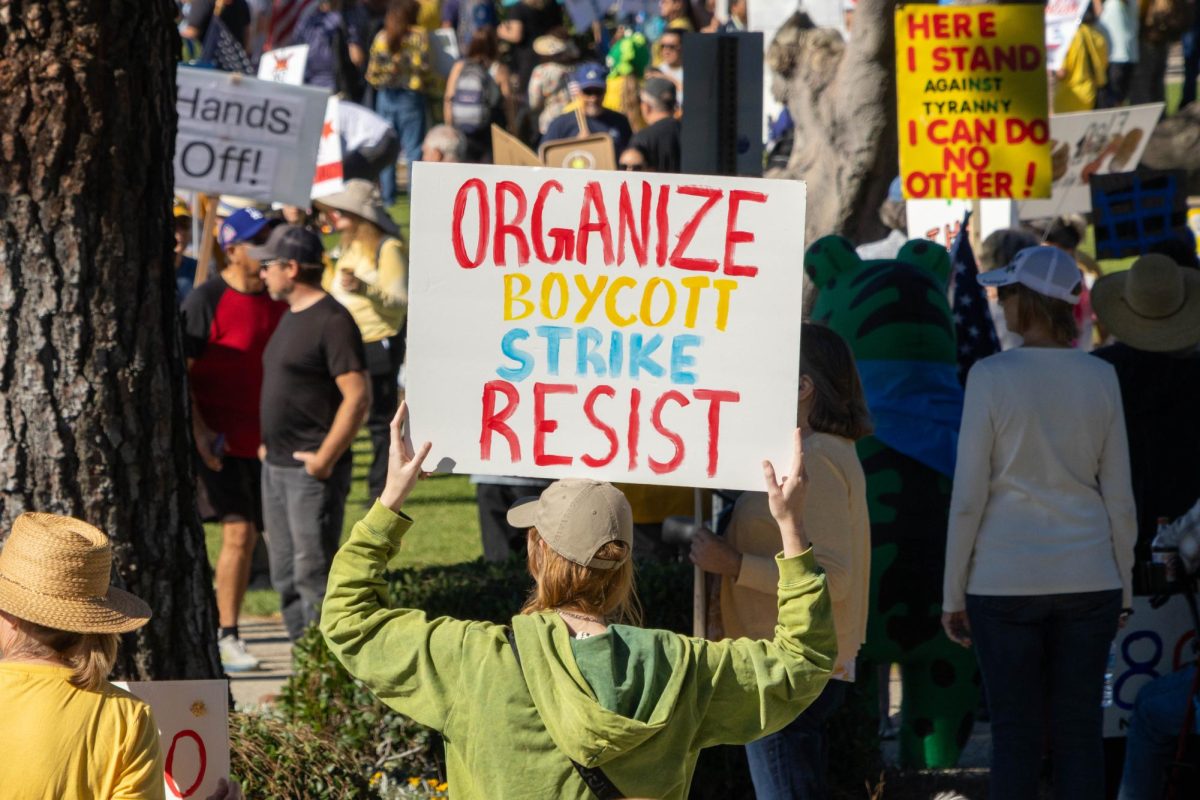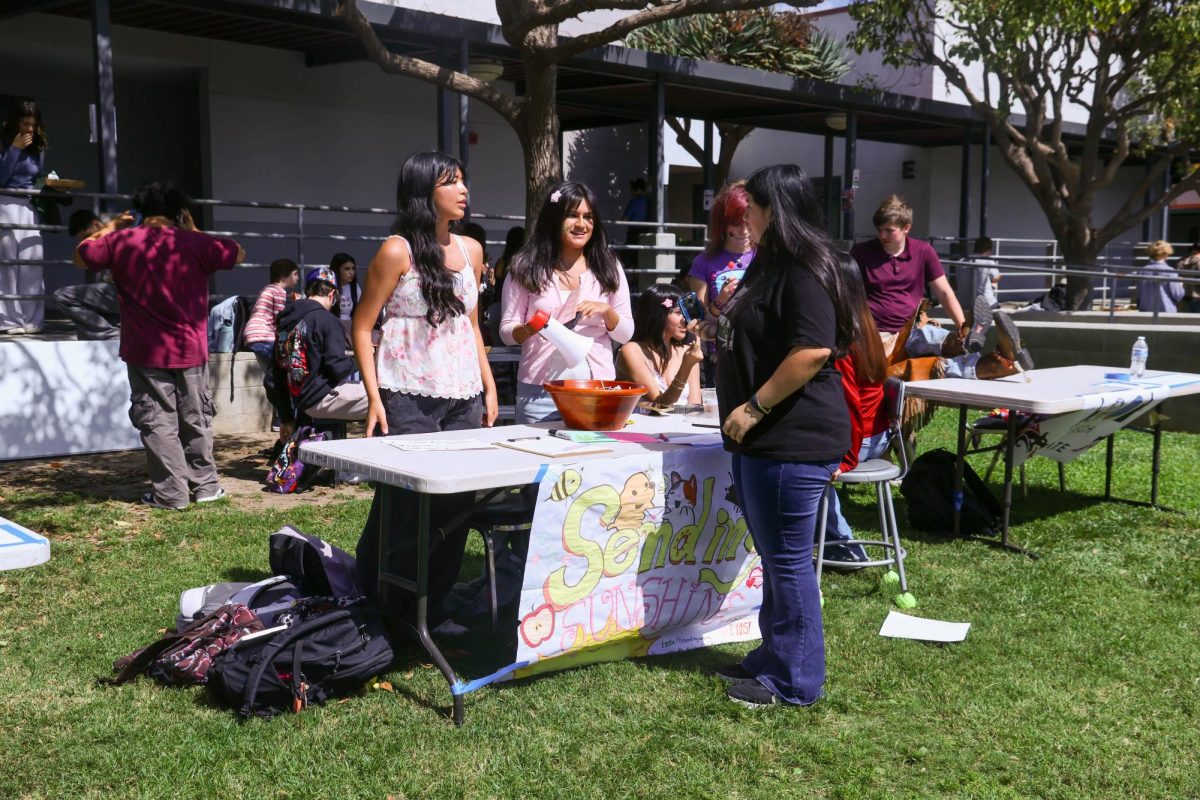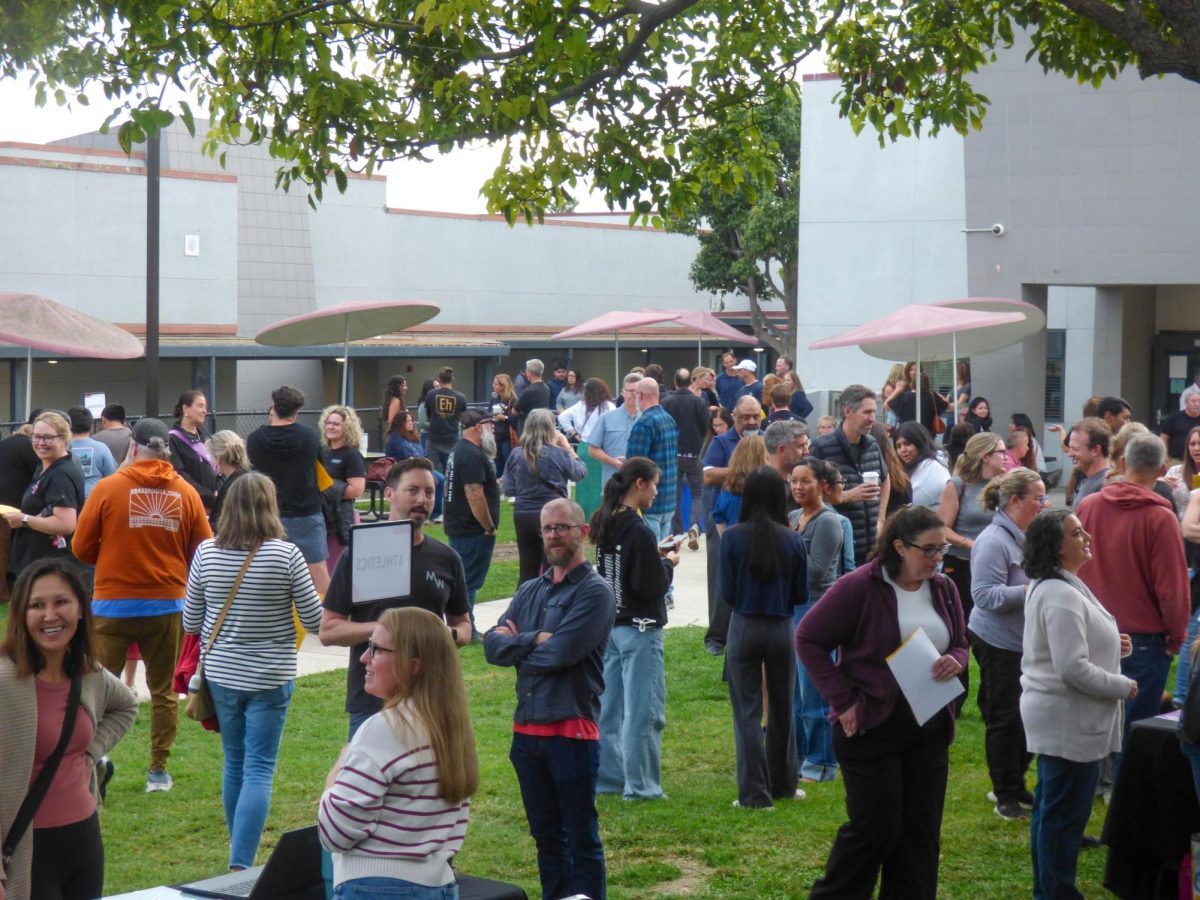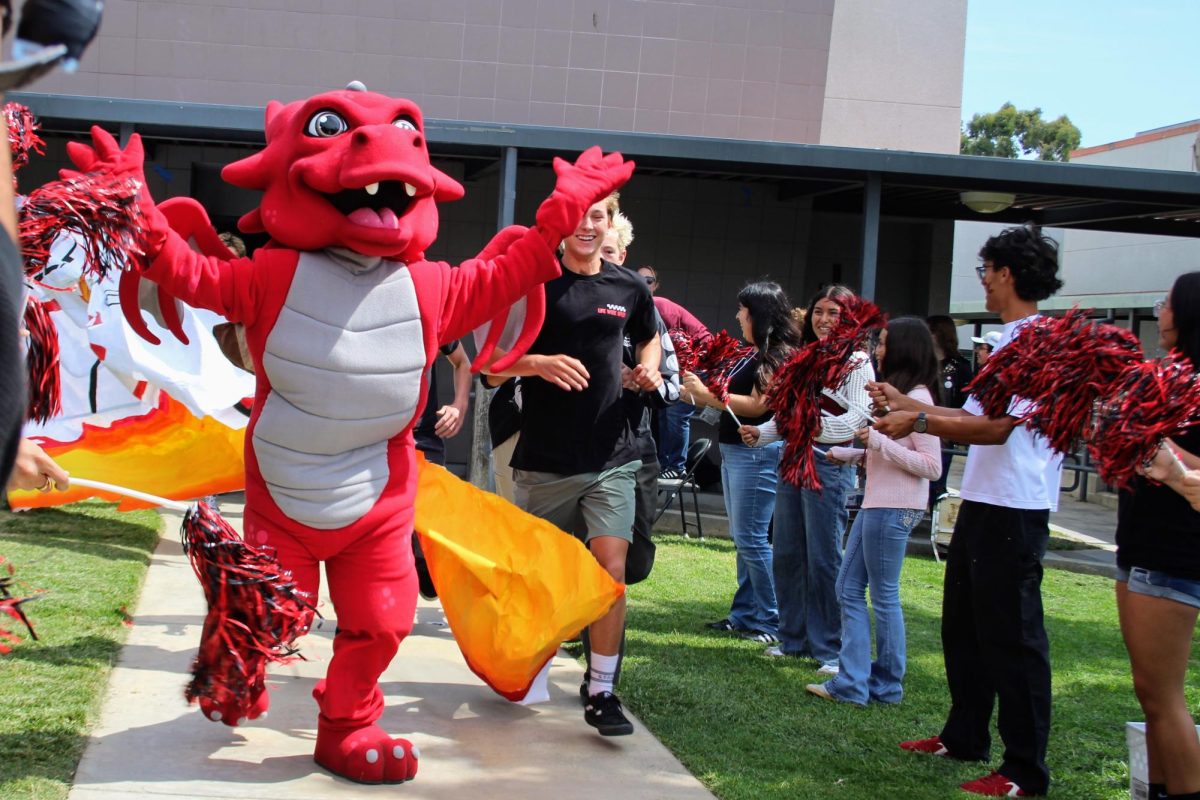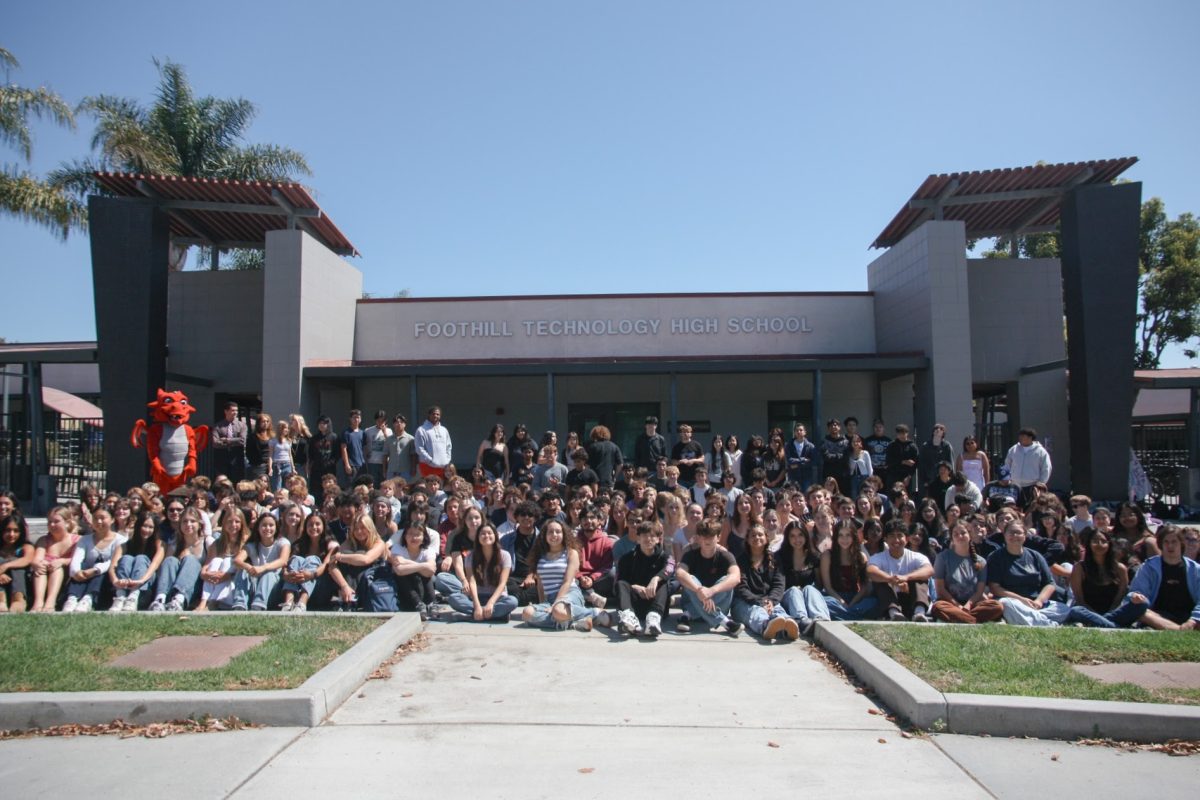Seniors dressed in bowties and business atire crowded the Foothill quad Friday afternoon as they awaited the start of their Hero Project presentations.
For the past 10 years, seniors have been assigned the Hero Project, a year-long cross curricular service and learning project. Seniors are required to complete between 15 and 35 hours of community service at one organization in order to become “heroes” to their community.
Project topics range from funding teacher education in Sierra Leone to training service dogs. The project is intended to have a human focus, so students can feel what it’s like to make a difference another person’s life. The projects are judged by teachers, alumni, parents, and community members.
This is the last year that Foothill seniors will partake in the project.
“For the past 10 years, this project has been my baby,” Melanie “Captain” Lindsey said to the judges before explaining that she felt it was time to change the project.
While the seniors were treated to a Corrales lunch, the judges were listening to a sample presentation in order to understand what constitutes a quality speech.
Senior Matt Zinik was approached by Lindsey and government teacher Cherie Eulau to be the model speaker.
“I really didn’t know what I was getting into yet,” Zinik said of being the sample presenter. “At first I wasn’t nervous, then I was nervous, and then I was just like ‘let’s just get this over with.”
For his project, Zinik organized the city’s first Gay Prom in order to raise money for COLOR (Community Organized for Liberty, Opportunity & Respect) and provide a safe and fun night for lesbian, gay, bisexual and transgender (LGBT) youth.
“It was a huge success, more than I thought imaginable,” he said. Later on, he noted that the Gay Prom “gave teenagers a chance to be teenagers.”
First-time judge and executive director at Caregivers Tammy Glenn enjoyed Zinik’s speech. She recently went to a conference detailing concerns about elderly members of the LGBT community.
“His issue was very topical for us [at Caregivers],” Glenn said.
After the sample presentation and lunch ended, seniors went to their assigned classes to present their speeches in front of three to four judges.
Students were graded on their content, delivery, Powerpoint or Prezi, letter, attire and time management. The aim of the students’ speeches was to give a detailed description of their project, explain their central question, and reflect on how they helped their community and what they gained from the experience.
For his project, Dylan Mason volunteered at his local Boy Scouts of America troop where he taught middle schoolers skills such as building a fire from flint and steel and basic first aid.
“I was learning that you can’t just tell them how to do it… you need to lead by example,” he said.
Mason said that his mentoring went beyond teaching practical skills, he also built relationships with his troop members. He plans to continue volunteering with the Boy Scouts even though the project is over, and intends to go with them on their week-long camping trip to Frasier Park.
“I felt that even though there was an age difference, we were able to bond… I’m really happy that I was able to leave them with a person to look up to,” he said.
Senior Trevor Jordan tutored elementary-aged children at Project Understanding, a topic that he felt he stepped out of his comfort zone for as he had no prior experience working with kids.
“I wanted to improve the academics of each child… and establish a positive environment that would raise their self-esteem,” he said. “And the other thing [goal Jordan hoped to accomplish] was to make learning a less painful experience.”
Science teacher Mika Anderson was pleased with the presenters in her room, and made a point to compliment them on their presentations.
“I have assessed the senior projects for many, many years now… and I have to say, it’s really nice to sit through presentations where each and every one of you enjoyed your projects,” Anderson said to the seniors she listened to.
Foothill parent Dean Mead was also impressed by the presentations he heard.
“I thought the kids really took ownership of their projects… and really learned some valuable life lessons,” Mead said.
Credit: Bethany Fankhauser/The Foothill Dragon Press


